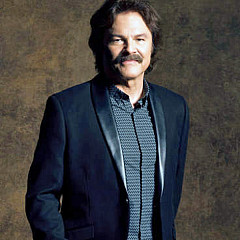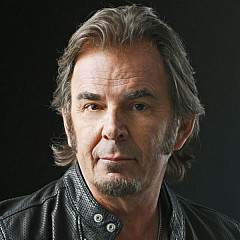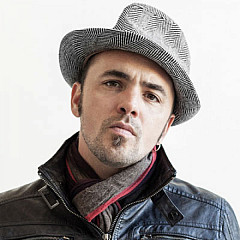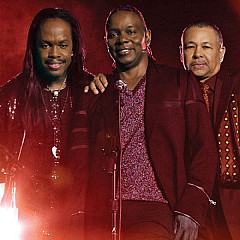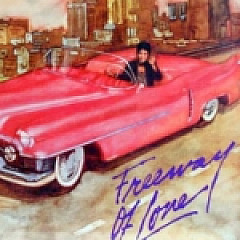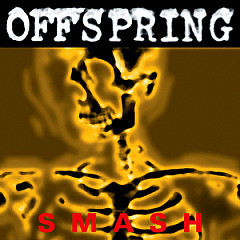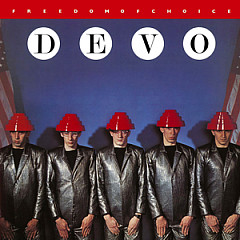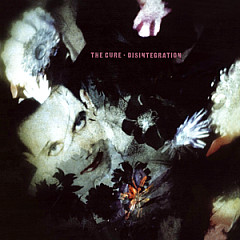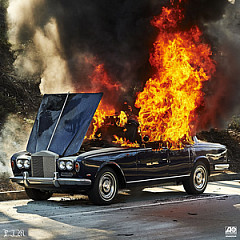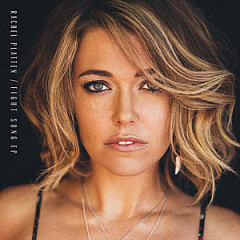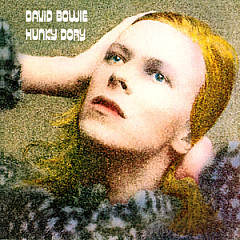Circa Survive is known for Green's Jon Anderson-like high vocals and the act's progressive alternative rock musicianship. Green took time out from a festival appearance to talk Circa Survive music.
 Dan MacIntosh (Songfacts): Is there a method that you normally use when it comes to writing songs for the band?
Dan MacIntosh (Songfacts): Is there a method that you normally use when it comes to writing songs for the band?Anthony Green: No. There's like a lot of different methods we use. Sometimes it'll be as simple as somebody coming up with just a guitar riff or an idea, bringing it to the table and everybody works around that. And some of the songs are developed; some of the songs Colin (Frangicetto) will have written the majority of the structure and the idea, and he'll bring it to us. Some of them start out with just acoustic guitar and vocal. We really try everything.
Songfacts: Who writes the majority of the lyrics?
Anthony: I probably write the majority of them, but everybody gets involved with everything. You know, if there's a feeling or an idea that somebody has about a part, whether it's musical or lyrical, we all chime in. So it's a really collaborative thing.
Songfacts: Now, you've been in bands before. Have you been in this kind of a situation where it's been so democratic?
Anthony: This was designed out of the experiences that we've all had with other bands. This is something we all were looking for. We all had a similar taste in music and we all had a similar desire to create something together as a unit, so that's sort of how it developed.
Songfacts: You didn't want to get in a band with a dictator?
Anthony: Yeah. We've all been in situations where one person's primarily the writer, one person or the other. And I think that really having that input, everybody giving input really benefits the song.
Songfacts: What would you say are your fans' favorite songs of yours, if you can think of three songs that you absolutely must do before you get off stage?
Songfacts: That's a good thing.
Anthony: It's surprising. It's hard to tell what everybody really likes. You get different reactions different nights with different songs and places.
Songfacts: You guys were just doing a signing. Did people come up to you and say, "You guys have to do this song today..."
Anthony: Oh, yeah. We get that all the time. But it's weird, because it's always different. It's never the same thing. So I think in that way we're lucky.
Songfacts: Yeah. Are there songs in your repertoire that are misunderstood?
Anthony: There's definitely songs that are misunderstood. Our band has always been... I wouldn't say we're trying to be different or anything, but we definitely rely more on metaphor and poetic license a lot of the times.
There's other songs we have that are more straightforward, but I always appreciated when art is left up to interpretation, and I think a lot of our songs are a little bit open to be left upon to interpretation. So it's not that they're specifically meant for one feeling and one specific meaning and used on specific theme. It's that it touches on many different themes. It can be open and meaning different things to different people.
Our band name gets misinterpreted, though. People think it's "Circus of Five," but we're Circa Survive.
But we have songs in our earlier records where I'll say the word, like, "cocaine," in context of somebody's skin is white like cocaine. And people just hear "cocaine" automatically think the song's about drugs. And it's like we're just using that word in a poetic way.
Songfacts: They're probably thinking, "Dude, cocaine!"
 Anthony: Exactly. No, it's just some people, that's how far they read into things. Maybe that drug song means something to them. Whatever is their interpretations. I don't want to ruin it by telling them what it was about for me. And, really, it changes for me, too. I look back on songs we wrote 10 years ago and lines that other people wrote and that I wrote, and they mean different things to me now than they did back then. But they're still really meaningful. That's what important.
Anthony: Exactly. No, it's just some people, that's how far they read into things. Maybe that drug song means something to them. Whatever is their interpretations. I don't want to ruin it by telling them what it was about for me. And, really, it changes for me, too. I look back on songs we wrote 10 years ago and lines that other people wrote and that I wrote, and they mean different things to me now than they did back then. But they're still really meaningful. That's what important.Songfacts: Can you think of any particular songs that have changed their meaning over the years for you?
Anthony: There's a song we wrote on our third album, the same album that "Get Out" is on. It was written at kind of a sad time, and now when I hear it, it's like a celebration.
Songfacts: Because you've gotten over it?
Anthony: Yeah. You've dealt with it in a good way and it's a different year in a different time.
Songfacts: What's the song called?
Anthony: It's called "Spirit of the Stairwell."
Songfacts: And what was it about?
Anthony: It was about some issues my wife and I were having.
Songfacts: And now you've gotten past it you can sing it now as a celebration of getting over that?
Anthony: Yeah.
Songfacts: See, because that's a thing that those of us that don't write and sing songs for a living, we don't understand what it's like to write something about something really serious and personal, and then you have to sing it. And then if it becomes a hit, you always have to sing it. Can you think of any other songs that have changed for you over time?
Anthony: Oh, man. I could look at every song we've ever written and think about what it was inspired by and think about how it affects me now, just because I'm different. It changes. It's kind of limitless.
Songfacts: So the band, is it now 10 years or more?
Anthony: It's a little bit more. We're really fortunate.
Songfacts: In what ways do you think you're different than when you started?
Anthony: Personally, we're all vastly different. And creatively, I think we've really learned how to effectively work together and get the best out of each other. The most efficient way possible to write and inspire each other, give each other the space that you need and give each other the push that you need to really get the best from one another. I think that's something that's always changing. We'll definitely have a lot more growth ahead of us, a lot more to learn. We're not done, by any means.
Songfacts: Can you see yourself 10 years from now still be in a band?
Anthony: I have a hard enough time seeing myself in this moment. I would love nothing more than that. Always trying to take it one day at a time.
Songfacts: Is there a song that you do in the set that's your personal favorite that you enjoy the most?
It helps me. No matter what the situation is, I always really get into it when we play that song. It helps me connect.
Songfacts: Is it about your brothers?
Anthony: Yeah.
Songfacts: How many brothers do you have?
Anthony: I have three older brothers.
Songfacts: That's kind of unusual for a band in the genre that you're in to write about family things.
Anthony: Oh, yeah. I write about my family all the time.
Songfacts: That's cool. Do they like the song?
Anthony: I don't know.
Songfacts: You don't know? Oh, come on.
Anthony: We don't talk about it. I think it's hard for them to listen to.
Songfacts: Because it's about them?
Anthony: Yeah.
August 15, 2014
More Song Writing

